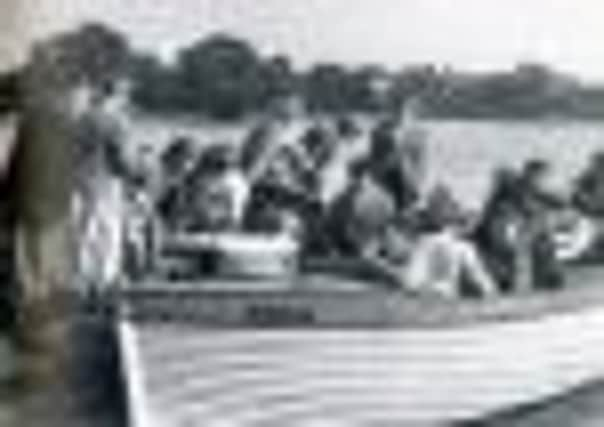Saving fresh air and fun


NASTY diseases, filthy children and poor living conditions may sound like something from a Charles Dickens novel, but this was the grim picture in Wakefield in the 1930s. So when the Hornsea Seaside School opened on May 2, 1938 it provided a breath of fresh air for the local kids.
Tuberculosis, diphtheria and scarlet fever were rife at the time and were affecting school attendance. Better housing, improved diets and clean water supplies were helping to improve public health but it was not enough.
Advertisement
Hide AdAdvertisement
Hide AdDr Allardice, who was the city’s medical officer of health in those days, wanted to see open air schools across the district, and some were designed with this in mind. But the initiative went no further and artificial sunlight clinics were no compensation.


Hornsea Seaside School was seen as the next best thing. It operated as a residential elementary school 24 weeks a year, and a holiday camp for debilitated children during the summer break. It aimed to benefit every child, regardless of their background, to enhance the curriculum and give them new experiences.
But it also proved to be a great tonic and left them with some of their fondest memories. Nora Smith was among the first to visit Hornsea Outdoor Residential Centre when it opened in the late 1930s. The 86-year-old and her brother George Hant, now 88, spent a week there with Sandal Endowed School.
Mrs Smith, of Church Court, Ossett, said: “We were two of seven children and dad worked down Walton pit. But you didn’t get much money back then, so there was none for holidays. We would never have seen the seaside as children if it wasn’t for Hornsea.
Advertisement
Hide AdAdvertisement
Hide Ad“I remember we had shoes and clothes given to go. We would have lessons in the morning and go on nature walks and things in the afternoon. On the last day, they took us into town so we could buy little presents to take home. It was so lovely.”


The history of the seaside school was summed up in a book to mark its 60th anniversary more than a decade ago, by John McLeod, Wakefield’ s former corporate director of education.
As well as documenting its sentimental value, the book told of day-to-day life there under the strict regime implemented under the watchful eye of matron in the early years, which included lessons, dormitory inspections and church.
But it showed there was no shortage of fun either, with trips to the beach, cinema, Hull docks, Catfoss Aerodrome and the game reserves at Wassand, as well as inter-dorm sports competitions, nature walks, concerts and dances.
Advertisement
Hide AdAdvertisement
Hide AdElsie Marshall, 74, of Thornes, Wakefield, said: “I went when I was around 12-years-old and a pupil at Manygates Secondary Modern School. The boys went for three weeks but we girls only went for two as it was thought we would get homesick.


“It was the first holiday I had ever had and I loved every minute of it. I have very vivid memories of the fun we had and the bread and dripping and hot cocoa we had every night for supper.
“Our families used to send us small food parcels and I remember getting a pack of gingerbread from my aunt in Cumberland which was a real treat.”
By the early 1950s Hornsea’s attraction had begun to fade. Families could now afford more exotic holidays than this and the start of the National Health Service just after the war meant all children’s health and nutrition had much improved.
Advertisement
Hide AdAdvertisement
Hide AdThe place was given a new lease of life in 1974 following the formation of Wakefield Council. It was transformed into an education centre which continues to benefit youngsters from schools across the district to this day. Maybe it will not be for much longer. Last month, bosses at Wakefield Council said it will close in October unless a voluntary group comes forward to save it.
They blamed Government cuts, but there has been a question mark over the centre’s future since September 2006.
Interested parties have until September 30 to come forward with proposals to run the centre.
The Hornsea Support Group, formed by a group of crusading parents and teachers to save the centre, is putting together a business plan in the hope the centre can be run as a charitable trust. Stuart Boothman, one of its members, said, “The centre really does mean so much to so many across different generations.”
Advertisement
Hide AdAdvertisement
Hide AdAll three of his children have visited the centre in the past and he added: “My youngest went two years ago and couldn’t wait to get there having listened to his two older sisters telling him how fantastic it was. He came back with his expectations met, and would love the opportunity to go again. We want to tap into the enormous support being offered that demonstrates the real desire to keep Hornsea open and we are confident that it can be done. “